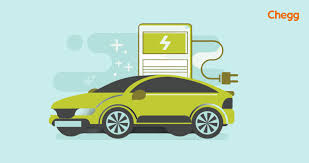Going electric: On India and the electric vehicle space.
India must be a reliable trade partner to compete in the EV space.
India’s decision to exempt import duties on 35 capital goods used in the manufacture of electric vehicle (EV) batteries and 28 items used in the making of mobile phone batteries is a welcome step toward boosting domestic manufacturing and clean technology adoption. Proposed by Finance Minister Nirmala Sitharaman in the Union Budget 2025-26 and formalised through the Finance Bill 2025 passed in Parliament on Tuesday, this signals a strategic policy shift. Earlier in March, Chinese EV giant BYD unveiled its “Super E-platform”, capable of giving a vehicle a 500-kilometre range with just five minutes of charging — a major leap toward alleviating range anxiety, which is a key barrier to EV adoption. This innovation directly challenges the convenience of conventional vehicles and could accelerate the global EV transition if scaled and deployed with the same ubiquity as traditional fuel stations. Batteries remain the most expensive component in an EV, comprising roughly 40% of the vehicle’s cost. This cost burden has slowed EV adoption in lower-income countries, despite the long-term advantage of reducing oil import dependence, which is especially relevant for India. Another critical barrier is the lack of indigenous technological capability in battery manufacturing. China currently dominates this sector, producing over 70% of all EV batteries globally, according to the International Energy Agency. The lithium-iron-phosphate (LFP) battery has emerged as the industry standard over the past five years due to its lower cost, higher energy density, and better thermal management.
While EVs made up 45% of all car registrations in China in 2024, they accounted for just 2% of India’s passenger car market. However, electric two-wheelers (e2w) have seen notable momentum in India, with 1.14 million units sold in 2024, making up about 60% of total EV sales. Though India’s duty exemptions are partially aimed at strengthening bilateral trade ties with the United States and avoiding reciprocal tariffs, the broader strategic objective should be to decarbonise its transport sector. To achieve this, India must integrate into both the upstream (mining and refining) and downstream (manufacturing and assembly) segments of the global EV battery value chain. This would not only help lower battery costs through technology transfer but also position India as a reliable alternative to China in the eyes of developed nations seeking supply chain diversification. India’s long-term success in the EV space will depend on its ability to leverage favourable trade policies, invest in research and development, and secure a strong foothold in the global battery ecosystem.
